Sreenivas Chavali | UK
Zsuzsanna Dosztanyi | Hungary
Monika Fuxreiter | Hungary
Toby Gibson | Germany
Andrey Kajava | France
Sonia Longhi | France
Sandra Macedo-Ribeiro | Portugal
Annalisa Pastore | UK
Andreas Plueckthun | Switzerland
Marco Punta | France
Frederic Rousseau | Belgium
Gian Tartaglia | Spain
Peter Tompa | Belgium
Silvio Tosatto | Italy
Vladimir Uversky | USA
Salvador Ventura | Spain
.........................................................................................................................................................................................................................................
SPEAKERS' BIOGRAPHICAL SKETCHES
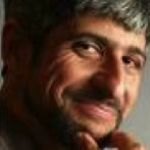 |
MIGUEL ANDRADEMiguel Andrade received his Ph.D. in Biochemistry at the Universidad Complutense de Madrid in 1994. He trained at the post-doctoral level at the European Molecular Biology Laboratory in Heidelberg and Cambridge with Chris Sander and Peer Bork. |
|
| His post-doctoral studies involved the development and application of computational methods for the analysis of gene and protein function and structure. From 2003 to 2007, he was Assistant Professor in the Department of Medicine of the University of Ottawa and Scientist and Head of the Bioinformatics Group of the Ottawa Health Research Institute in Ottawa, Canada, where he was promoted to Senior Scientist in 2006. In 2007 Miguel started the Computational Biology and Data Mining group, first at the Max Delbrück Center for Molecular Medicine in Berlin and since September 2014 at the Institute of Molecular Biology in Mainz. The group focuses on the development and application of computational methods that are used to research the molecular and genetic components of human disease. Since April 2014, Miguel is professor of bioinformatics at the Faculty of Biology of the Johannes Gutenberg University in Mainz and adjunct director of the Institute of Molecular Biology. | ||
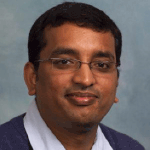 |
SREENIVAS CHAVALI | UKSreenivas Chavali is an Investigator Scientist working with Dr. M. Madan Babu at MRC Laboratory of Molecular Biology (MRC-LMB), Cambridge, UK. He leads a research programme aimed at understanding how tandem repeats and low complexity sequences influence phenotypes by affecting different cellular processes, with special emphasis on human diseases. |
|
| His research also focuses on understanding the influence of tandem repeats and low complexity sequences on the genome and transcriptome evolution. He was awarded a Ph.D. by University of Pune (2009) for his work done at CSIR Institute of Genomics and Integrative Biology, India on dissection of genetic components underlying human genetic diseases. Subsequently, he was a post-doctoral fellow at the Unit for Clinical Systems Biology, University of Gothenburg, Sweden (2009-2010), where he undertook research to understand the effect of gene-expression variation on diverse human diseases. He joined MRC-LMB as a Career Development Fellow in 2010 and subsequently was awarded an EMBO long-term fellowship in 2012. Since 2014 he has been an Investigator Scientist and a Research Fellow at Wolfson College, University of Cambridge, since 2012. |
||
|
||
 |
MONIKA FUXREITER | HUNGARYMonika Fuxreiter is an associate professor at University of Debrecen, Hungary. She was a postdoctoral fellow at USC, Los Angeles, working with the Nobel prize winner Arieh Warshel. She worked in the Weizmann Institute, Israel and the Laboratory of Molecular Biology, MRC, Cambridge. |
|
| She developed various models for recognition by intrinsically disordered proteins. She proposed the concept of "fuzzy" protein complexes, where structural ambiguity exists and is functionally required in the bound form. She revealed specific regulatory mechanisms by fuzzy complexes and also their role in context-dependent activities. Currently she focuses on the role of fuzzy complexes in eukaryotic transcriptional regulation. She is a recipient of the L'Oreal Unesco "Women for Science" award. | ||
|
||
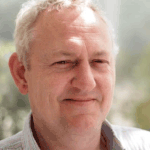 |
TOBY GIBSON | GERMANYToby Gibson is at the European Molecular Biology Laboratory (EMBL) in Heidelberg, Germany. He studied Biology at Edinburgh University and did his PhD with Bart Barrell at the LMB, Cambridge. He is a computational biologist: i.e. a biologist who finds computers to be useful adjuncts to biological research. |
|
| He is a co-developer of the widely used Clustal series of multiple sequence alignment software. He oversees the development of ELM, the Eukaryotic Linear Motif resource (http://elm.eu.org/) devoted to protein sequence motifs involved in cell signalling and regulation. Toby is currently fascinated by the developing structure-function paradigm for the massively interacting hub proteins such as P53, IRS-1, sundry AKAPs and many, many more. These are characterised by large natively unstructured protein segments that are repositories of abundant ?linear motifs? or SLiMs - short regulatory sites that interact with other proteins. These low affinity interacting modules allow for co-operative and combinatorial regulatory interactions in the assembly of large regulatory protein complexes in response to signals received at the cell membrane. Multiple input parameters can be sampled by direct interaction so that regulatory decisions are made by in-complex molecular switching (http://switches.elm.eu.org) often returning multiple outputs into the regulatory networks. This discrete switching model contrasts with the more prevalent and diffusionist signalling cascade metaphor. The latter perspective would seem to be in need of replacement by a model that allows for more spatially and temporally discrete operations. | ||
|
||
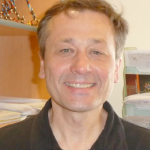 |
ANDREY KAJAVA | FRANCEDr Andrey Kajava holds a position of Director of Research at the Centre National de la Recherche Scientifique (CNRS) in France. He is a head of Structural Bioinformatics and Molecular Modeling group at the Centre de Recherche de Biochimie Macromolèculaire (Montpellier, France). |
|
| In the past, he conducted research in several prestigious laboratories in Russia, Germany, Belgium, Switzerland and United States. His group is using methods of theoretical structural biology and bioinformatics to understand principles of protein structures and biomolecular interactions. The obtained knowledge is applied for prediction of protein structures and functions, drug design, as well as for de novo engineering of proteins. For many years his research is focused on proteins with tandem repeats, on amyloids and prions. The results of his work can be applied in materials science, biotechnology, nanotechnology and medicine. Research keywords: structural biology, amyloids, prions, tandem repeats, bioinformatics, proteomics, protein sequence-structure-function prediction, computational biology, molecular modeling, protein folding, protein-protein interactions, de novo molecular design, structure-based drug discovery, pathogens, nanotechnology. |
||
|
||
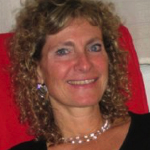 |
SONIA LONGHI | FRANCESonia Longhi is Director of Research at the Center for the National Scientific Research (CNRS). She is the head of the "Structural Disorder and Molecular Recognition" group within the AFMB laboratory, Marseille. She obtained a PhD in molecular biology from the Universitá degli Studi of Milan in 1993. |
|
| She got a HDR in structural virology from the University of Aix-Marseille I in 2003. Her scientific focus is on intrinsically disordered proteins (IDPs) and the mechanistic and functional aspects of the interactions they establish with partners. To date, she has authored more than 100 scientific publications and edited a book on measles virus nucleoprotein. She also co-edited (with Prof. Vladimir Uversky) a book on the experimental approaches to characterize IDPs and a book on structural disorder within viral proteins (Wiley). | ||
|
||
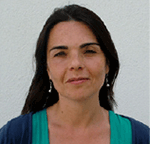 |
SANDRA MACEDO-RIBEIRO | PORTUGALSandra de Macedo Ribeiro started training in Protein Crystallography in 1992 as an Erasmus fellow at the University of Aarhus (Denmark), prior to graduating in Biochemistry from the University of Porto (Portugal). |
|
| She then obtained a Ph.D. in Chemistry from the Technical University of Munich (Germany), under the supervision of Prof. Robert Huber (Max-Planck-Institut fuer Biochemie, Martinsried, Germany), followed by a postdoctoral research training with Prof. Miquel Coll (IBMB-CSIC, Barcelona, Spain). Sandra then moved to the University of Algarve (Portugal) as Auxiliary Professor and two years later became Auxiliary Researcher at the Center of Neuroscience and Cell Biology (Coimbra, Portugal) where she lead the Protein Structure Group. Since 2006, Sandra de Macedo Ribeiro leads the Protein Crystallography group of the Institute for Molecular and Cell Biology (Porto, Portugal). The Macedo Ribeiro lab focuses on the structural and functional characterization of biomedically relevant proteins, with a special emphasis on understanding the modulatory role of intermolecular interactions on proteins associated with neurodegenerative diseases. | ||
|
||
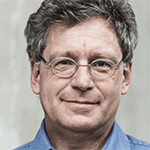 |
ANDREAS PLÜCKTHUN | SWITZERLAND
|
|
| Andreas Plückthun is currently a Full Professor of Biochemistry and the Head of the Department at the University of Zürich, Switzerland. He was born in Heidelberg, Germany, and studied chemistry at the University of Heidelberg. He received his graduate education at the University of California at San Diego (USA), where he obtained a Ph.D. in 1982. He was a postdoctoral fellow at the Chemistry Department of Harvard University (Cambridge, USA) (1982-85). From 1985 until 1993, he was group leader at the Genzentrum and Max-Planck-Institut für Biochemie in Martinsried, Germany. He was appointed to the faculty of the University of Zürich as a Full Professor of Biochemistry in 1993. He has written over 350 publications, which have been cited over 19,000 times (h-index 80). In 2003, he was elected to the German Academy of Science (Leopoldina). He received the Young Investigator's Award of the German Industry Fund, was elected member of EMBO, and is recipient of the Karl-Heinz-Beckurts-Prize for 2000 (Munich, Germany), a finalist in the World Technology Awards 2001 (London, UK) and recipient of the JP Morgan Chase Health Award in 2002 (San Jose, USA) and the Wilhelm Exner Medal 2002 (Vienna, Austria), and together with his colleagues, the Swiss Technology Award 2005 (Bern, Switzerland) and the deVigier Award in 2005. In 2010, he received an advanced grant from the European Research Council. He is co-inventor on 20 patent families. He co-founded and is Scientific Advisor of Morphosys AG (Martinsried near Munich, Germany, about 450 employees) and he co-founded Molecular Partners AG (Zürich, Switzerland, about 70 employees), for which he serves also as a board member. His research field is protein engineering. His lab combines protein design, directed evolution, biophysics and biomedical applications. While group leader at the Max-Planck-Institute near Munich, he laid the foundations for making synthetic antibodies for therapy: his major contributions to the field include antibody engineering (the first expression of folded antibodies in E. coli, the first synthetic antibody libraries, and many investigations about folding and stability). As a professor at the University of Zurich, he developed "evolution in the test tube", a true Darwinian in vitro evolution technology of proteins (ribosome display). He exploited these technologies to develop a class of binding proteins (DARPins), which are now in the clinic. Recently, he focused on the evolution of highly stable G-protein coupled receptors and solved their crystal structures. | ||
|
||
 |
MARCO PUNTA | FRANCEMarco Punta is a researcher in the Laboratory of Computational and Quantitative Biology at the University Pierre and Marie Curie in Paris. He is a former Project Leader of the Pfam protein family database at the Wellcome Trust Sanger Institute and the European Molecular Biology Laboratory, European Bioinformatics Institute (EMBL-EBI). |
|
| Marco has a degree in Physics from the University of Rome "La Sapienza" and a Ph.D. in Biophysics from the International School for Advanced Studies (SISSA) in Trieste, Italy. He did his post-doctoral work in the lab of Prof. Burkhard Rost at Columbia University New York, USA. Marco's background includes development of prediction methods for protein structural and functional features (transmembrane helices, residue contacts, intrinsic disorder, metal binding), structural genomics (structure-based annotation of protein function and development of target selection pipelines), database management (Pfam) and application of remote homology searches to compositionally biased regions, including intrinsic disorder, and to analysis of complete proteomes. | ||
|
||
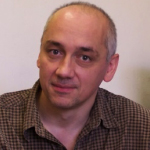 |
PETER TOMPA | BELGIUMPeter Tompa received his PhD in biochemistry and enzymology from ELTE University, Budapest in 1991. Currently, he is the director of VIB (Flanders Institute of Biotechnology) Structural Biology Research Center (SBRC), Brussels, and a professor of biochemistry at the VUB (Free University Brussels). |
|
| He also holds the position of professor of biochemistry and protein sciences in the Institute of Enzymology, Research Centre for Natural Sciences, Hungarian Academy of Sciences, Budapest, Hungary. He has research groups both in Brussels and Budapest. His research focuses on intrinsically disordered proteins (IDPs): he played an active and decisive role in the rise of this field by suggesting a functional classification of IDPs, observing the role of structural disorder in chaperone function and developing basic concepts of the unusual modes of function of IDPs (such as moonlighting, fuzziness, disordered domains, supertertiary structure, multisteric regulation, conformational signaling, etc...). He published 136 papers (about 50 of which are related to structural disorder), 10 book chapters, and the first monograph of the field "Structure and function of intrinsically disordered proteins" (2009) by Taylor and Francis, Inc. (CRC Press). His work received about 7000 citations (ISI), his H-index is 38. He has been an invited speaker at about 100 international meetings, such as the first IDP subgroup meeting at the "51st Annual Meeting of the Biophysical Society" in Baltimore, USA (2007), and the Gordon Research Conference on Intrinsically Disordered Proteins (2014). He organized the first conference of the IDP field, the EMBO workshop "Intrinsically unfolded proteins: from structure to function" in Budapest, Hungary (2007). |
||
|
||
 |
VLADIMIR UVERSKY | USAVladimir N. Uversky, PhD, DCs, Associate Professor, obtained his Ph.D. in biophysics from the Moscow Institute of Physics and Technology (1991) and D.Sc. in biophysics from the Institute of Experimental and Theoretical Biophysics, Russian Academy of Sciences (1998). |
|
| He spent his early career working on protein folding at the Institute of Protein Research and the Institute for Biological Instrumentation (Russian Academy of Sciences). Here, while working on the experimental characterization of protein folding, Dr. Uversky has found that some mostly unstructured proteins can be biologically active. These findings, together with the similar observations of other researchers, eventually forced him to reconsider the generality of the protein structure-function paradigm and to suggest that natively unfolded (or intrinsically disordered) proteins represent a new important realm of the protein kingdom. In 1998, he moved to the University of California Santa Cruz to work on protein folding, misfolding, and protein intrinsic disorder. In 2004, he moved to the Center for Computational Biology and Bioinformatics at the Indiana University-Purdue University Indianapolis to work on the intrinsically disordered proteins. Since 2010, he has been with the Department of Molecular Biology at the University of South Florida, where he is now an Associate Professor. At the University of South Florida, Dr. Uversky has continued his work on various aspects of protein intrinsic disorder phenomenon and on analysis of protein folding and misfolding. He has published over 550 peer-reviewed articles and book chapters in these fields. Dr. Uversky participated in the establishment of the Intrinsically Disordered Proteins Subgroup at the Biophysical Society and the Intrinsically Disordered Proteins Gordon Research Conference. He is an Executive Editor of the Intrinsically Disordered Proteins journal. | ||
|
||
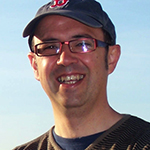 |
SALVADOR VENTURA | SPAINSalvador Ventura is Full Professor at the Dep. of Biochemistry and Molecular Biology and leader of the Protein Folding and Conformational Diseases group at the Institute of Biotechnology and Biomedicine, Autonomous University of Barcelona (UAB). |
|
| He has authored more than 120 peer-reviewed research and review papers, apart from several books, book chapters and patents. He got his Ph. D. in Biology at the UAB in 1998 and worked as postdoctoral fellow (1999-2001) at EMBL-Heidelberg. He has been researcher at Harvard Medical School (USA) and Karolinska Institutet (Sweden) among other centres. He rejoined UAB as a Ramon y Cajal researcher in 2003. Dr. Ventura has received the UAB Excellence Research Award and the ICREA-Academia Award on Biological and Medical Sciences. His research interests are protein folding, misfolding and aggregation, with special focus on their role in conformational diseases such as Alzheimer, Mitochondrial and Prionic disorders. | ||
|
Rua do Campo Alegre, 823, 4150-180 Porto - Portugal
Tel +351 226 074 900 . Email: RITA.MATOS@ibmc.up.pt